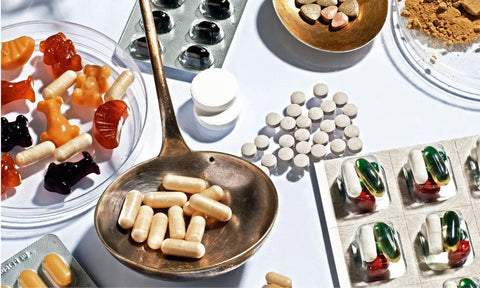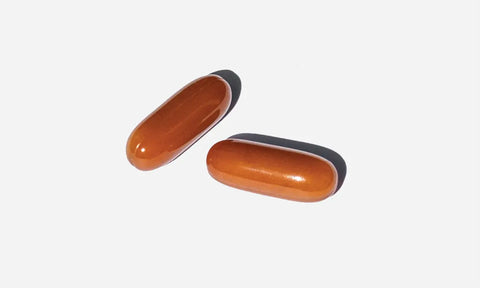When it comes to choosing a supplement, it can be tricky. From misleading claims to unnecessary additives, you really have to do your homework.
Contrary to popular belief, not everyone needs a supplement — a lot of people get the nutrients they need from a healthy, balanced diet. So, the first step is to understand if you need to take one.
The most common reasons someone might take a supplement include:
- age
- medications
- medical conditions
- food allergies
- type of diet
- pregnancy
A blood test can also help you understand whether your diet is providing you with all the nutrients you need. Based on this, you can make an informed decision about whether you need a supplement or not.
If you’re on any medications or have a medical condition, you should always speak with your doctor before taking any kind of supplement.
How to pick a high-quality supplement
Once you’ve decided that a supplement is what you need, the next step is finding one that’s high quality.
Watch out for bold claims / Watch out for any supplements that make bold claims — for example, a supplement that helps to clear acne or reduce the signs of ageing. If it sounds too good to be true, it probably is!
Read the ingredients / Always make sure to read the ingredients. If it lists any ingredient you don’t recognise or understand, research them to make sure it’s not an unnecessary additive. Low-quality supplements can be full of additives which block your body from absorbing the active ingredient (the nutrient you want).
Often, you can get an indication of the quality of a supplement by checking the ‘free from” information. This might include, ‘free from’:
- gluten
- wheat
- lactose
- eggs
- soy
- shellfish
- tree nuts
- peanuts
- artificial preservatives
- artificial colourings
- GMOs
It’s particularly important to read the label if you have an allergy.
Check the dosage / It’s really important to choose a supplement that has the right dose for you. There can be a fine balance between getting enough and over supplementing. More is not always better!
Taking too much of a food supplement can potentially cause health problems — for example, too much vitamin D can lead to a condition called vitamin D toxicity. This is rare but it’s still worth paying close attention to the doses in your supplements.
On top of this, the dose only makes up part of the picture. You also need to consider the bioavailability of the active ingredient.
Check the bioavailability / Bioavailability refers to the amount of the nutrient that your body is able to absorb. There are many different forms of nutrients and some are much easier to absorb than others.
For example, magnesium is available a lot of different forms, like magnesium chloride, sulphate, bis-glycinate, taurate, or citrate. Some of these are easier to absorb but they can also have different benefits. So it’s worth doing your research or working with a health professional to find the right form for you.
Consider the cost
Supplements can be really expensive — so look for a price that works for you and, if needed, a price you can afford long-term. There can be a trade-off between the cost and quality of the supplement, so you need to get the balance right. Remember that supplements are only worth the money if you remember to take them; set an alarm to remind yourself!
Check where it’s made & where the ingredients are sourced from / If you want to get comfortable with what you are consuming and your carbon footprint, make sure you check the origin and manufacturing methods.



